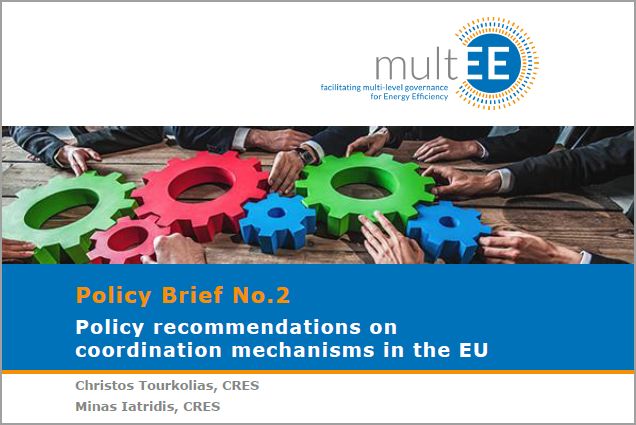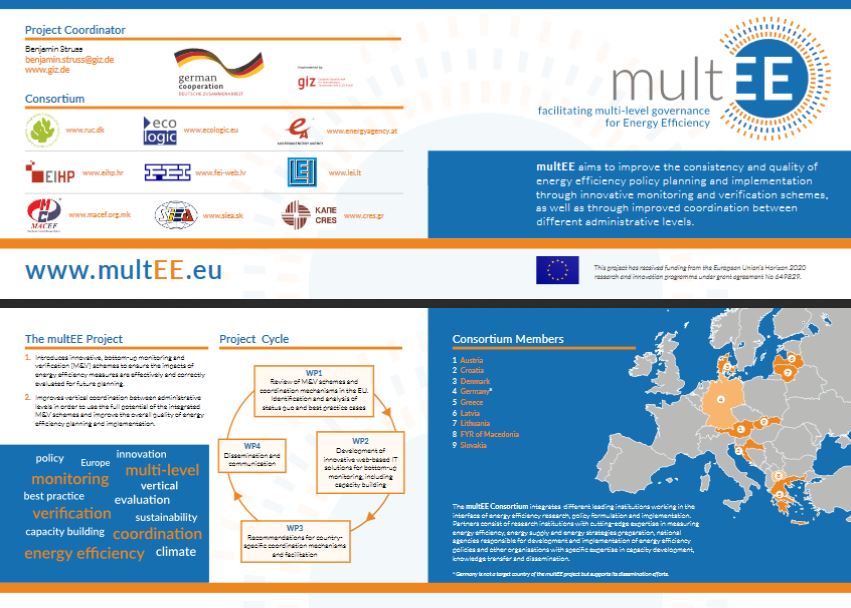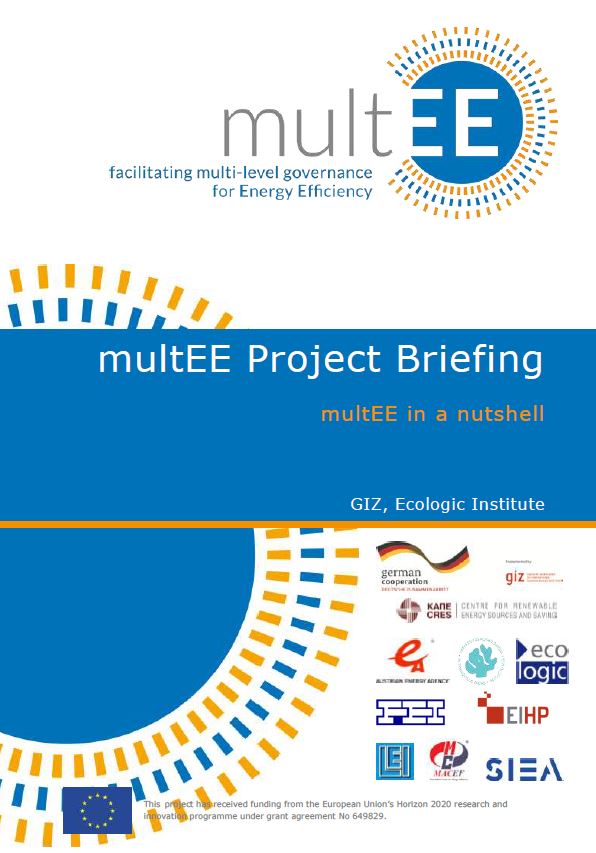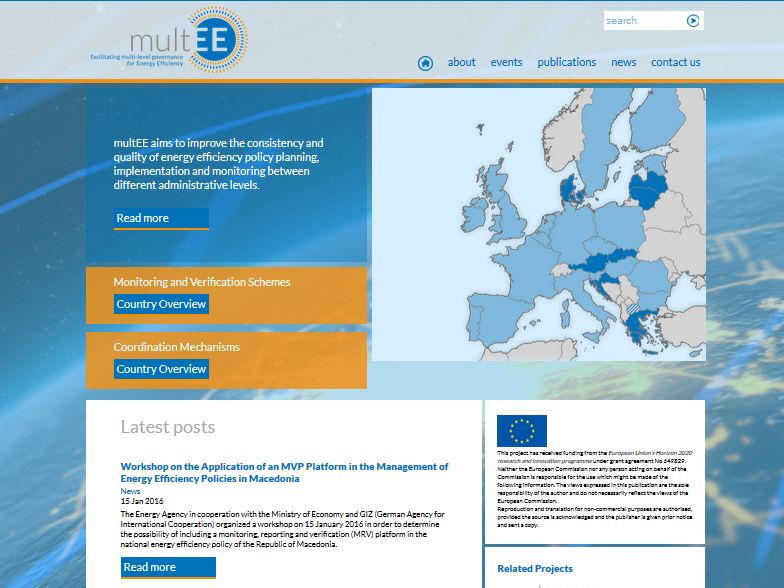Unlocking the Potential for Improved Energy Efficiency Policies
Best practices and policy recommendations
- Publication
- Citation
Tourkolias, C. und M. Iatridis (2016). Policy recommendations on coordination mechanisms in the EU. multEE Project Policy Brief No. 1.
Tourkolias, C. und M. Iatridis (2016). Policy recommendations on coordination mechanisms in the EU. multEE Project Policy Brief No. 2.
Iatridis, Minas et al. 2016: Synthesis report on European best practices for M&V schemes and coordination mechanisms.
What can we learn from European best practices on the existing Monitoring & Verification schemes and coordination mechanisms in Europe? Can bottom-up methodologies contribute to a more reliable measurement and verification process? Can the engagement of local and regional actors in the energy efficiency policy formulation process unlock the potential for improved Energy Efficiency policies?
The first two policy briefs produced by the multEE project feature a set of policy recommendations, six on M&V schemes and five on coordination mechanisms, aimed at policy makers at different policy levels engaged in the development of effective and coherent energy efficiency policies. The recommendations reflect the conclusions from a broader "Synthesis report on European best practices for M&V schemes and coordination mechanisms" that, based on an initial mapping of existing M&V schemes and coordination mechanisms across Europe, identifies and analyses a vast array of Best Practice cases on M&V schemes and coordination models.
Policy Brief No. 1 on Monitoring & Verification schemes
The recommendations in the field of M&V focus on aspects such as: the need to keep the design and implementation of energy efficiency measures within one Ministry; the involvement of other specialized institutions in the administration of the M&V scheme; the importance of allocating responsibilities and lines of reporting and coordination among all the involved institutions; the use of bottom-up methodologies for monitoring purposes; the adoption of one (or few) centralized information systems for an easy and standardized data collection procedure, as well as the integration of the most effective verification and reporting procedures into the M&V scheme.
Policy Brief No. 2 on coordination mechanisms
As for the recommendations related to coordination mechanisms, the spotlight is on the importance of clearly defined responsibilities for energy efficiency policy making and the implementation and allocation of responsibilities between administrative levels; involving local and regional actors in the energy efficiency policy formulation process; engaging authorities through fora and networks; the need to adopt legal obligations and develop specific financial support schemes as a motivation tool for local and regional authorities; the development of skills through capacity building and the implementation of procedures facilitating access to data and information.
The two policy briefs are available for download.
The multEE project
multEE (Facilitating Multi-level Governance for Energy Efficiency) is a Horizon 2020 project that aims to improve the consistency and quality of energy efficiency policy planning and implementation through innovative monitoring and verification schemes as well as through improved coordination between different administrative levels. The project is led by Deutsche Gesellschaft für Internationale Zusammenarbeit (GIZ) and is funded by the European Commission’s Horizon 2020 Programme. The consortium also includes Ecologic Institute (Germany), the Austrian Energy Agency (AEA), the Centre for Renewable Energy Sources and Saving (CRES), the Institute of Physical Energetic (IPE), the Energy Institute Hrvoje Pozar (EIHP), the Lithuanian Energy Institute (LEI), the Macedonian Center for Energy Efficiency (MACEF), the Slovakian Innovation and Energy Agency (SIEA) and the University of Roskilde (RUC).








